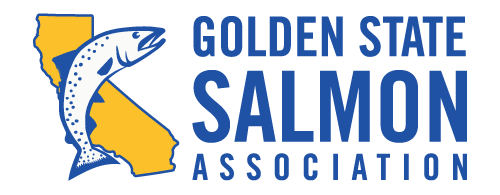In a move to help expedite the deployment of federal fishery disaster relief to fishing industry businesses, GSSA sign-on with organizational support for the bipartisan FISHES Act. The introduced legislation would improve the federal process associated with delivering fishery disaster relief and seeks to expedite the distribution of federal disaster relief following fishery disaster declarations.
“The California salmon fishery is in its second year of closure and that means fishing families have lost most of their income. The impacts are personal, as well as economic, and they are desperately waiting for disaster relief funding that can often take more than a year to receive,” said Scott Artis, executive director of Golden State Salmon Association. “The FISHES Act is a critical lifeline for fishing businesses and will ensure much needed funding is quickly distributed to thousands of families who struggle to put food on the table, make mortgage payments, and keep their boats from being repossessed during fishery disasters.”
In April the 2024 California salmon fishing season was closed for the second year in a row while fishing families impacted by the 2023 closure continue to wait for emergency disaster relief funding – now more than 14 months after a disaster was declared by the State of California in 2023.
The FISHES Act will:
- Improve the federal regulatory processes associated with fishery disaster relief funding within the Office of Management and Budget (OMB).
- After Congress appropriates fishery disaster relief funding, funding may be dispersed IF:
- NOAA approves the state-submitted spend plan; and
- OMB approves the state-submitted spend plan.
- Currently, OMB has no incentive to approve the spend plan because OMB has no deadline to approve.
- Disaster funding process: Congress appropriates funds → Within 14 days, NOAA coordinates with OMB to determine allocation of funds → Within 120 days, State creates and submits spending plan to NOAA → Within 90 days, NOAA approves spend plan and submits to OMB for approval → OMB approves spend plan (but no timeline to do so) → State receives approval to spend funds in accordance with their approved spend plan.
- Fishery specific impacts include: (1) boats and dockage can be damaged or destroyed; (2) fishing equipment can be lost or destroyed; (3) commercial fishermen and charter captains can lose revenue if they can’t host and operate fishing trips; (4) for charter businesses, hotel and restaurant infrastructure may be impacted thus dissuading clients from fishing in the impacted area; (5) fish wholesale dealers lose business; (6) water quality issues impact fish health due to high levels of salinity/HABs in the water.
- If the federal fishery disaster relief funding process is not modernized and streamlined, many fishing businesses and associated small businesses could go out of business before the relief is made available.
